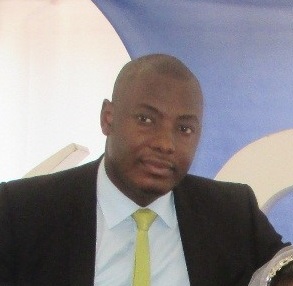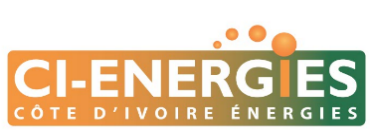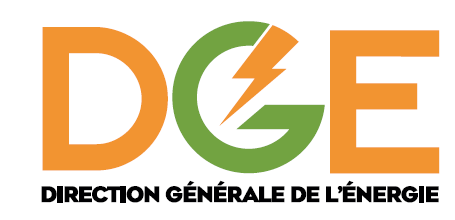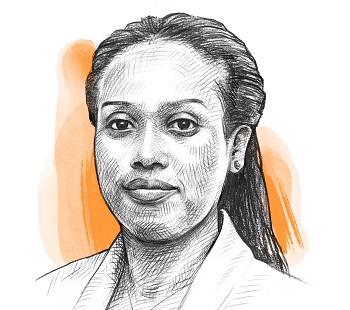ECLER IVOIRE – Rural Electrification and Energy Efficiency
Objective
-
€ 12mBUDGET
-
15/11/2017PROJECT START
-
70 monthsDURATION
The ECLER IVOIRE project aims to improve access to electricity for rural people in Côte d'Ivoire through solar energy and reduce energy consumption in public buildings. It is part of the programme to support the energy sector in Côte d’Ivoire financed by the European Union.
Two main areas of operation have been identified for the implementation of this project:
• Decentralised rural electrification through renewable energies
• Energy efficiency in public buildings.
Improving access to electricity for rural people in Côte d'Ivoire through solar energy
The “Decentralised rural electrification through renewable energies” component of the ECLER IVOIRE project involves the construction of stand-alone mini-grids powered by hybrid solar power plants (photovoltaic power plants with storage coupled with generators). Sixteen mini-power plants with a total capacity of 792 kWc are being installed.
The Ivorian Government has identified 17 municipalities for electrification in the departments of Tiassalé, Koro, Touba, Ouaninou, Biankouma and Odienné. This represents a population of about 10,000 inhabitants and 1,500 households. All this infrastructure is built in accordance with current standards in the electricity sector in Côte d’Ivoire and is part of the assets of CI-ENERGIES.
At the same time, various tools have been developed to analyse the economic relevance of a solar investment. The objective is to assist the nationwide replication of this investment: the Ministry of Energy has identified a potential of several thousands of sites to be electrified by stand-alone grids.
Improving energy efficiency in public buildings
The “Energy efficiency in public buildings” component aims to achieve a sustainable reduction in energy consumption in public buildings in Côte d’Ivoire. More specifically, energy rehabilitation works are being carried out on a tower in the administrative centre of the Plateau in Abidjan (CITAD). The objective is to make this building a model for energy efficiency and energy management.
The SOGEFIHA building was selected following an evaluation of 72 energy-intensive buildings in Côte d’Ivoire. This administrative building, managed by the General Directorate of the Treasury and Public Accounting, comprises 9 floors and an air-conditioned area of over 5,000 m². A thermal and energy audit has provided a precise energy assessment per use and per floor. Overall, the building has a poor energy performance of 254 kWh/m² per year, with air conditioning accounting for over 70% of total consumption.
The analysis of the various uses has identified solutions generating an energy saving of between 30 and 40%, with the objective of achieving a very good performance of 156 kWh/m² per year. The solutions considered include:
• The renovation of energy systems (air conditioning-ventilation and lighting)
• The installation of an automated energy monitoring and management system
• The installation of solar panels
• The reinforcement of thermal insulation for roofs and facades.
The works started in December 2021 for a duration estimated at 12 months, with a budget of about €2.3 million.
To complete the project, solutions are being implemented to ensure the sustainability of the installations and their energy performance:
• An energy management system
• A new model for maintenance financing and management
• Awareness-raising for users on energy-saving solutions which they can apply at home, in order to build awareness and generate ownership of the project.
The implementation of the project will result in the first high-performance energy renovation on an occupied site, a reduction in operating and maintenance costs, and an improvement in the comfort and well-being of users. The SOGEFIHA building has thereby become the first building to comply with the new energy efficiency regulations in Côte d’Ivoire.
Some activities of the project
| Study visit of Expertise France in Dibikro village | Workshop to raise awareness on eco-friendly actions |
 Stéphane Amossi, technical expert, national focal point for the “Decentralised rural electrification by renewable energies” component
Stéphane Amossi, technical expert, national focal point for the “Decentralised rural electrification by renewable energies” component
1. How will rural electrification contribute to the objective of universal access to energy?
Certain municipalities in areas that are remote or difficult to access are not connected to the electricity distribution grid. The electrification of 30 municipalities via isolated electricity grids and domestic solar facilities aims to provide some 10,000 people with access to an energy source that is both clean and sustainable.
2. What is the technical input from the prefeasibility study?
This study has collected essential elements to properly size the future power generation and distribution infrastructure: socioeconomic data, available surface area, access conditions... On this basis, the team of experts will establish a “village sheet” for each municipality, based on the specific characteristics observed.
3. How have local stakeholders been involved?
The study was conducted over several weeks with support from the Ivorian administration and its regional representatives. There was a very warm welcome everywhere. The study also allowed the project to be presented to local authorities, administrations and future users, in order to collect information on their needs to define actions adapted to their expectations.





